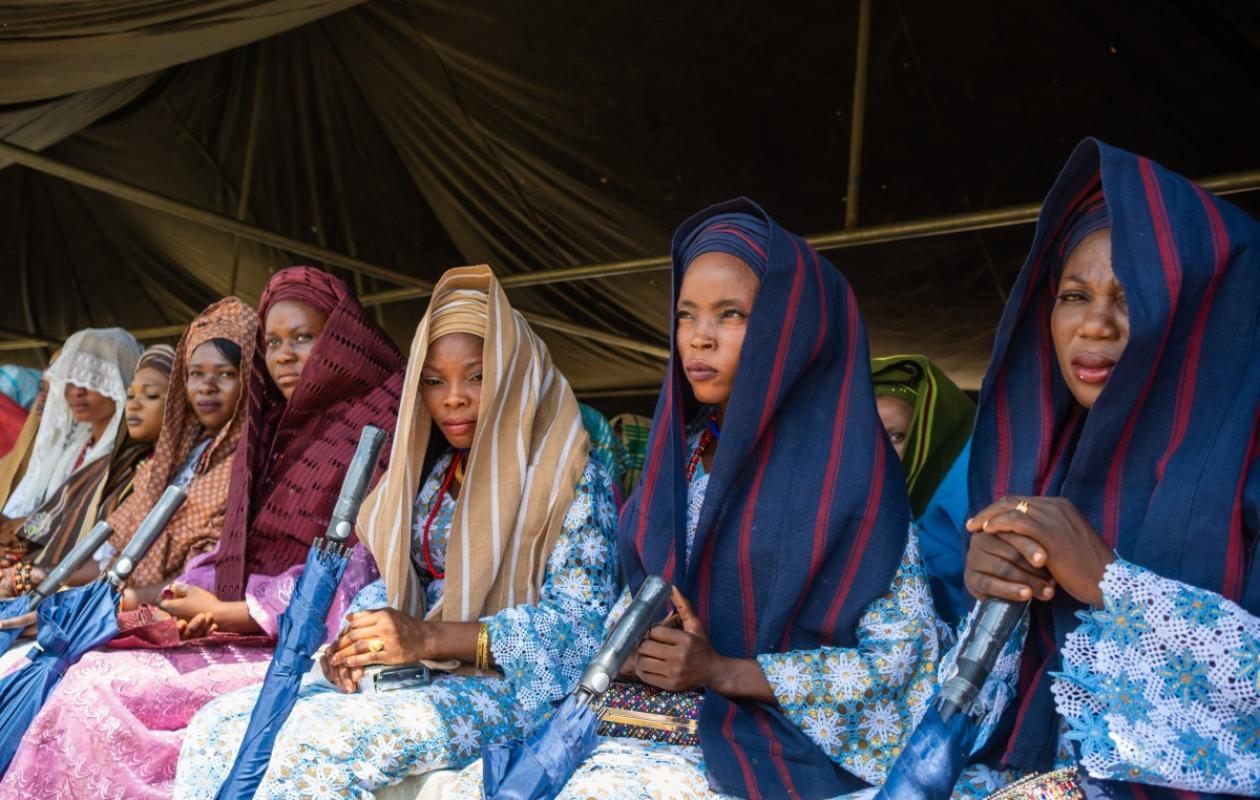
Dans l'ouest du Nigeria, un festival traditionnel célèbre le mariage collectif de dizaines de couples
Sheltering from the sun under large blue umbrellas, several dozen young Nigerian women dressed in colorful dresses paraded in procession to the rhythm of drums: they were all married collectively on Friday, according to an ancestral tradition that takes place every year in the state of Kwara, in western Nigeria.
"I am very excited to be getting married. I really wanted to do it according to the Awon tradition because it is very colorful and my mother did it many years ago," explains Jimoh Azizat, a hairdresser, who married a man from a family that worships the local goddess Awon.
This tradition of the collective Awon wedding, held in the small rural town of Shao in October, has its origins in local mythology.
A legend tells of a young hunter from Shao who one day met a strange one-breasted woman near the river, named Awon. He introduced her to the chiefs of his village.
After spending several days with a man from the village, she asked all the villagers to set aside a day each year to commemorate her visit by marrying off all the girls of marriageable age, in exchange for which the prosperity of the community would be ensured.
She had barely finished her speech when the one who was in fact a goddess vanished into thin air. Water began to gush forth from the place where she had disappeared.
After preparing themselves inside the palace of the local ruler, the Alawon, the brides paraded through the streets of Shao. The mass wedding was then blessed by the Awon priest.
"All the women in my lineage have done it, so I decided that I would also marry according to the rites of Awon, because she is a fertility goddess who always blesses everyone by giving them as many children as they wish," 25-year-old nurse Adebiyi Abosede, who desires "many children," told AFP.
"Since I was a teenager, I decided to perpetuate the tradition because anyone who marries according to the Awon rites can never be sterile," confirmed Adewale Afusat, a 31-year-old hairdresser who was among the 44 brides of the day.
Elegantly dressed and wearing their finest gowns in Aso oke, a traditional fabric with vibrant colours, the new brides were celebrated by dancers and musicians from the community.
The ceremony attracts thousands of tourists each year from Nigeria, the most populous country on the continent.
Commentaires (2)
Participer à la Discussion
Règles de la communauté :
💡 Astuce : Utilisez des emojis depuis votre téléphone ou le module emoji ci-dessous. Cliquez sur GIF pour ajouter un GIF animé. Collez un lien X/Twitter, TikTok ou Instagram pour l'afficher automatiquement.